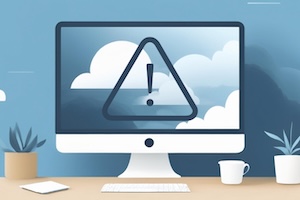
Decoding the Dark Web: How Your Data Could End Up in the Wrong Hands
Though so much of our lives are conducted online today, the dark web remains a mysterious and often misunderstood corner of the internet. When major data breaches occur — such as the AT&T and National Public Data breaches this year, in which billions of records were compromised — it’s common for people to worry that their identity has been stolen.
However, understanding how the dark web works and what happens to stolen data can help inform your next steps — and ease your worries — when you have an identity theft protection service like IDSeal® on your side. In this article, we’ll explore what the dark web is, what it means if your information is found there, and how IDSeal works to protect you.
The dark web is a part of the internet that isn’t indexed by traditional search engines like Google. It’s a hidden space not viewable in a standard web browser, requiring special software to access. While the dark web has some legitimate uses, like online communication to avoid censorship in countries ruled by authoritarian governments, it’s most notorious for being a marketplace where illegal activities, including the buying and selling of stolen data, take place. Think of it as an underground network where cybercriminals, also called “bad actors,” can operate with anonymity due to encryption.

When you hear about a data breach at a company, it doesn’t necessarily mean that your information has immediately been exposed on the dark web. Instead, what typically happens is that after successfully breaching a company’s security, a hacker compiles a dataset of stolen information. This data set can include anything from names, addresses, and Social Security numbers to financial information like credit card details and banking information.
The hacker then posts this dataset for sale on the dark web, where bad actors can purchase it, like an illegal version of eBay. Once this data is sold, the buyer — now armed with your personal information — can use it to open bank accounts, take out credit cards, or even create a new identity in your name. This is what qualifies as identity theft.
What does it mean when your information is found on the dark web?

If IDSeal alerts you that your information has been found on the dark web, it means that your data is likely part of a dataset that’s currently up for sale or has already been sold. This doesn’t automatically mean that your identity has been stolen, but it does mean that your information is vulnerable and could be used by bad actors for illegal activities.
The National Public Data breach this year was especially significant, with the stolen data of close to 3 billion records in the U.S., UK, and Canada posted for sale on the dark web. A hacker then leaked the information for free, making it available for any bad actor to access and misuse. This will most likely lead to a spike in identity theft cases for those whose data has been compromised. Though the risk level is currently high, our customers can feel reassured knowing IDSeal always has an eye out for their personal information.
How IDSeal monitors and protects your information

At IDSeal, our mission is to protect your personal information from falling into the wrong hands. We scan thousands of dark websites, public websites known for selling information, and hacker forums and communities looking for any mention of your data in datasets posted for sale. If we find your information, we immediately alert you so you’re aware of the potential risk.
But our service doesn’t stop at monitoring. If your information is purchased and subsequently used for identity theft, IDSeal provides comprehensive support to help you navigate the situation. Our 24/7 Identity Theft Recovery Support team is here to advise you on the necessary steps to take, and with up to $1 million identity theft protection insurance, you won’t have to pay out-of-pocket for any associated costs.
Trust in IDSeal
Start protecting your identity today! Signing up is quick & easy
Remember, 1-in-4 Americans are the victim of identity theft. It's not a matter
of if you'll become a victim, it's when...